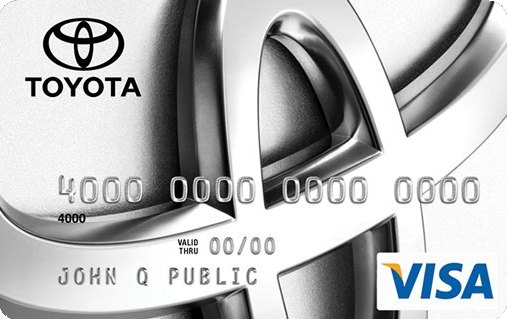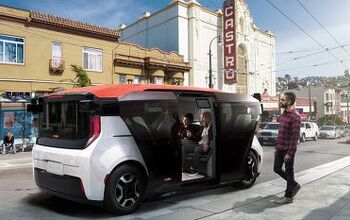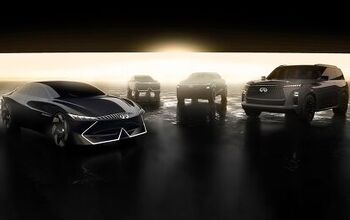Toyota Class-Action Lawsuits "A Little Cottage Industry Of Its Own"
The legal angle to the Toyota recall story has been a source of constant amusement, from an early attempt to prevent Toyota from enacting its gas pedal fix, to news today [via Reuters] that at least 30 class-action suits have been filed since the recall began. “This is going to a little cottage industry all of its own,” says Matt Cairns of DRI, the Voice of the Defense Bar, the largest U.S. civil defense attorney association.
“As this issue gets more attention, Toyota owners who had accidents in the past few years are going to wonder if those accidents were caused by unintended acceleration,” says one lawyer with Firestone scandal experience under his belt. “At some point, Toyota may have to decide to settle out of court. It’s far more expensive to go to court and would prolong the pain for Toyota and many families.”
We’ve already documented suits alleging that Toyota’s electronic throttle control lacks failsafes, but according to the lawyers in the Reuters piece, suits are being filed for everything from lost resale value to violation of warranty terms caused by selling faulty vehicles, to concealment of known defects ( including the Prius brake issue). “There is a very minuscule percentage of vehicles actually experiencing unintended acceleration,” says another lawyer. “But that will not prevent people from filing lawsuits against Toyota.”
More by Edward Niedermeyer
Latest Car Reviews
Read moreLatest Product Reviews
Read moreRecent Comments
- ToolGuy This thing here is interesting.For example, I can select "Historical" and "EV stock" and "Cars" and "USA" and see how many BEVs and PHEVs were on U.S. roads from 2010 to 2023."EV stock share" is also interesting. Or perhaps you prefer "EV sales share".If you are in the U.S., whatever you do, do not select "World" in the 'Region' dropdown. It might blow your small insular mind. 😉
- ToolGuy This podcast was pretty interesting. I listened to it this morning, and now I am commenting. Listened to the podcast, now commenting on the podcast. See how this works? LOL.
- VoGhost If you want this to succeed, enlarge the battery and make the vehicle in Spartanburg so you buyers get the $7,500 discount.
- Jeff Look at the the 65 and 66 Pontiacs some of the most beautiful and well made Pontiacs. 66 Olds Toronado and 67 Cadillac Eldorado were beautiful as well. Mercury had some really nice looking cars during the 60s as well. The 69 thru 72 Grand Prix were nice along with the first generation of Monte Carlo 70 thru 72. Midsize GM cars were nice as well.The 69s were still good but the cheapening started in 68. Even the 70s GMs were good but fit and finish took a dive especially the interiors with more plastics and more shared interiors.
- Proud2BUnion I typically recommend that no matter what make or model you purchase used, just assure that is HAS a prior salvage/rebuilt title. Best "Bang for your buck"!


































Comments
Join the conversation
“At some point, Toyota may have to decide to settle out of court. It’s far more expensive to go to court and would prolong the pain for Toyota and many families.” ....or in other words, "We have no hard evidence to prove negligence on Toyota's part, but the lack of tort reform in the US allows us to to legally blackmail corporations for huge settlements." Lawyers are not in this because they care about the little guy.....been there, done that, paid my money, I lose, they always win.
Bertel had a comment in a thread in the last week or two that I'd like to see him reprint here. He talked about the much higher cost of liability insurance for products shipped to the US or Canada - if coverage was available at all - and the lower lawyer fees in most European countries on product liability cases. But then he mentioned the much greater pre-sale regulation in those countries. They don't have the product liability lawsuits in large part because they prevent bad products and practices from reaching the market in the first place. A great example is the infamous McDonald's coffee case. You don't see cases like that in Europe because it would be a criminal act for a restaurant to serve coffee at a temperature that would cause third-degree burns. In most European countries that would put a restaurant manager in jail the first time it happened. Here it took several hundred incidents before McDonald's ran into a civil case that went to trial and publicly exposed their practices. Bertel noted that companies are exempt from product liability if their product was tested before production by one of the government agencies like the TUV. Anyone screaming about tort reform ready to trade for that? The idea that a trial lawyer can pull a summons from his pocket and a large company will fork over cash is a fairy tale. A company like Toyota can spend ten million dollars on pre-trial motions and procedures in one case and it's a rounding error on their bottom line. How many lawyers can put five or ten million dollars of their own money to pay the pre-trial expenses? The most popular and effective way for a corporate defendant to beat a product liability case is to keep the case out of court as long as possible. The goal is to make the case so expensive to the plaintiff's lawyer that he or she either drops it or settles on terms that are favorable to the defendant. If the case gets to trial, it's an equally large myth that juries are just waiting to hand over seven and eight figure settlements to anyone at the plaintiffs table. The character of the plaintiff is on trial as much as the actions of the defendant. It's not just enough to show that a company put a faulty product on the market that caused injury or death. You have to show that they knew the product was bad and ignored warnings. Again, the McDonald's coffee case went so badly for McDonald's because there were hundreds of prior burn incidents reported to the company and they refused to change their practices because keeping the coffee at 190 degrees meant they didn't have to make a fresh pot as often. If a company actually manages to lose at trial and a big judgment is awarded to the plaintiff, there is a decade or so of appeals at their disposal, and appellate judges almost always cut punitive damages substantially. When you see a company consistently settle before trial, it's because they want to keep things out of the public record. Ford and Firestone used this strategy for years in the Explorer rollover cases. Settling early and requiring a confidentiality agreement as part of the settlement keeps everything learned in discovery off the record and out of the public eye, like recommending lower tire pressure to improve the ride even though it greatly increased the risk of tire failure.